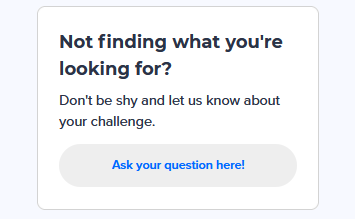For those of you that enjoy reading research papers, here is one thats good - The top five reasons for lurking: improving community experiences for everyone.
Some good points, share your thoughts on this thread and share any research papers you read that you thought was helpful.
I was hoping to add the PDF but dont see a spot I can upload the doc in the menu bar.





 Unfortunately, my university account has been disabled a looong time ago, so I am not able to access the full paper.
Unfortunately, my university account has been disabled a looong time ago, so I am not able to access the full paper.  But what I can read from the abstract is quite interesting already!
But what I can read from the abstract is quite interesting already! I don't believe many users don’t know how to register on a community, however there are some things that might act as a barrier. I sometimes see that the registration process via SSO (using the company login) is too complicated. When visitors need to invest five minutes to register, many will drop.
I don't believe many users don’t know how to register on a community, however there are some things that might act as a barrier. I sometimes see that the registration process via SSO (using the company login) is too complicated. When visitors need to invest five minutes to register, many will drop.
